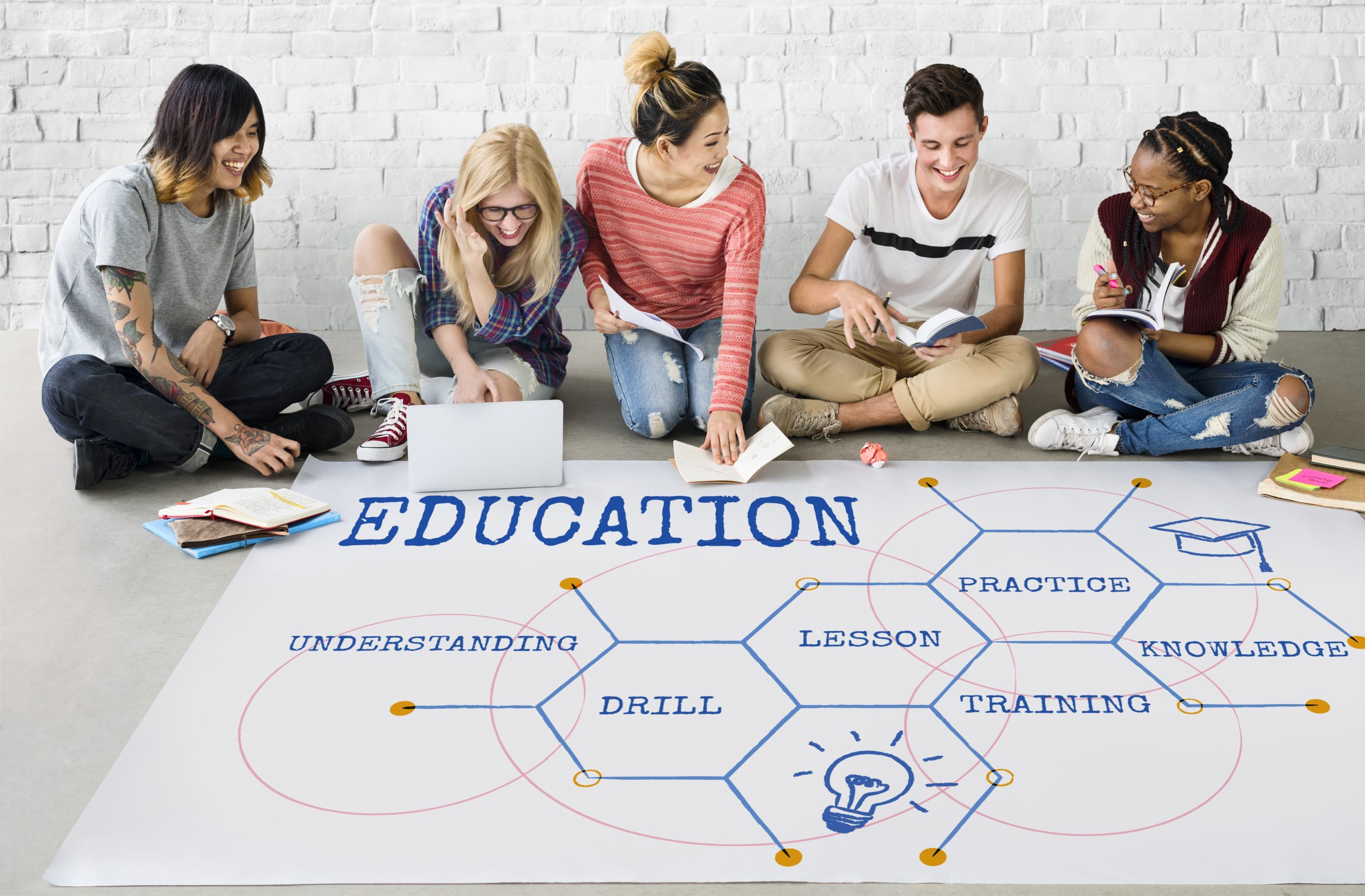Learning Process According to various information sources, artificial intelligence (AI) is becoming a ubiquitous phenomenon. US does not remain an exception either. AI is changing how students learn, how teachers teach and how all education business runs. AI can also assist in personalizing learning and by eliminating manual and rote work, it is clearly leading toward an intelligent approach in education.
AI’s Contribution to Education Learning Process

- Education involving AI refers to the use of intelligent systems which enhance the learning outcomes.
- These systems have the abilities of data analysis, trend prediction, and teaching method tailoring.
- AI is shaping education in mul ple ways from automated eye tutors to administrating offices.
Custom Curriculum Learning Process
- Among the predominant positive sides of AI inside Education is the custom curriculum. Each of the students has their unique speed of understanding and AI tends to accommodate this. To illustrate, Khan Academy or Coursera employ AI algorithms that offer courses, topics, and exercises depending on the strength and weaknesses of a student.
- Personalized Learning Mode: Students will learn the same Learning Process material through different mechanisms and the system will be continuously learning and adapting in real time to achieve maximum learning outcomes.
- Transparency and Speed: An AI system will always be able to tell precisely when and how a student went wrong, making it easier for him or her to learn and do better in the future.
Virtual Tutors and AI Assistants
- Virtual instructors are gaining prominence in the United States, that are powered by technology such as AI. These systems assist students at any time of the day and assist in the completion of their assignments, studying for a test, or answering questions related to the topic.
- Examples of Virtual Tutors: Duolingo some language-based programs and Photomath, an app that solves math problems, are a perfect example of what AI tutors are capable of.
- Availability: AI teachers never take leave and therefore are always on standby, Learning Processunlike the human instructors that are subject to working hours and that are best suited for learners that have varied or odd working hours.
Enhancing Classroom Experiences
- AI is also rendering classroom more fun and active. Smart tools help teachers make lesson plans that are more active and include changing lessons, keeping track of how students fare, and seeing where students are not doing well and require assistance.
- AI-Powered Assessments: One such Learning Process instrument is Grade scope wherein part of the marking process is done automatically through AI thus freeing the teachers time to teach not do paperwork.
- Classroom Analytics: Systems powered by AI look at attendance, level of participation, and performance and provides insights derived from the analyzed data on how to improve teaching practices.
- Enhancing the Proficiency of Teachers and Learning Process Admin AI technology empowers not only students but teachers and even administrators as well.
- AI automates and provides appropriate insights turning who needs which task such practice into teaching.\n \n\n The lightening automation: standing along, AI will perform all acts connected with attendance tracking, lessons planning, report coming up with.
- \n\n AI and Special Needs Education Tools in the Learning Process Classroom With this platform AI HT students with disabilities find that barrier being crumbled, speech and speech restriction on oral applications are distorting the inspiration As example, Text help- Read& Write children with learning disabilities such as dyslexia can use, language dysfunction aids greater the level of disfunction whereby verbal communication is not even a possibility.
Obstacles to AI in Education
The application of AI technology in the field of education has numerous issues which challenges its use such includes the following:
- Expensive For Implementation: Implementation of AI technologies demands massive funding which can be a challenge for schools that do not have adequate finances.
- Data Privacy Issues: Having data of pupils and their secure storage generates issues pertaining to safety and confidentiality.
- Lack of Trust From Teachers: The AI tools entails the use of Learning Processtechnologies that some educators doubt how well they will perform, and might worry that it could result in human teachers losing their jobs.
- Societal Damage: Not every learner has the means to utilize the required learning tools to assist them in AI driven learning.
Prospects for AI in Education
The prognostics of education benefiting from AI in the future is electrifying:
- Next coming decade we would expect to see the widespread use of AR and VR technologies utilizing AI capabilities providing exciting powerful education tools, furthermore AI capabilities powered by advanced NLP technologies will lead to more interactive and user friendly systems.
- In United states of America, several states are already funding AI projects aimed at transforming the educational sector, some of initiatives like AI4K12 wish to see incorporation of AI concepts into the school syllabus to enable students fit perfect in the job market in the technologically advanced world egging forward.
To Sum Up
USA has been able to harness from the abrasive capabilities AI powered technologies could provide in terms of advancing education as it has made education to become more learner centered and easy to access across the socio-economic distribution while addressing issues like security privileges and censorship Along with concerns such as cost and privacy restrictions, the apparent advantages



